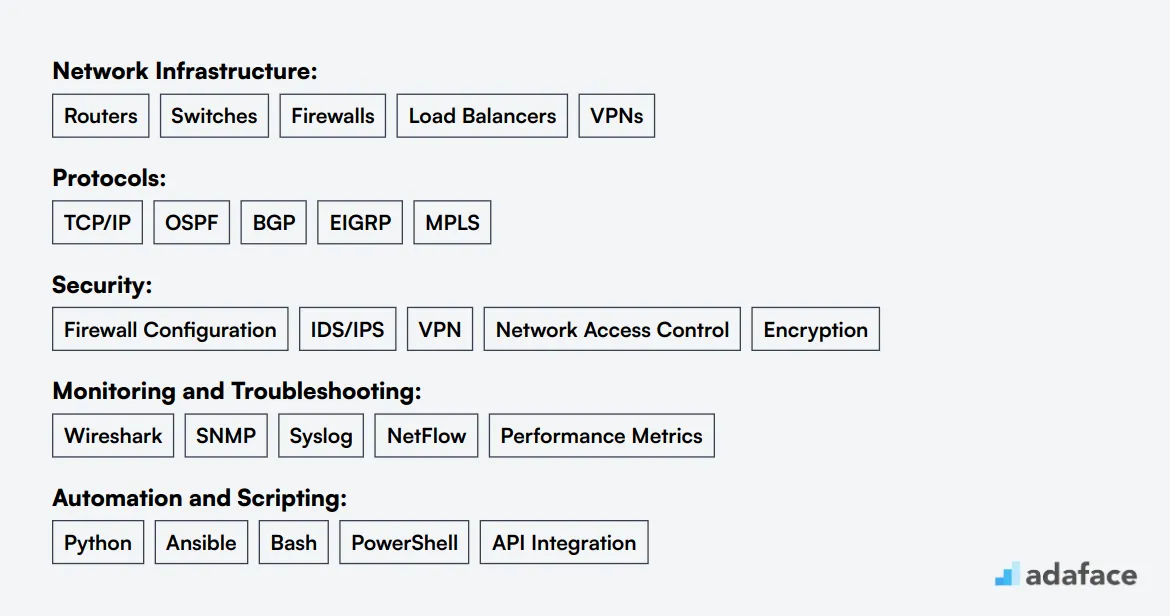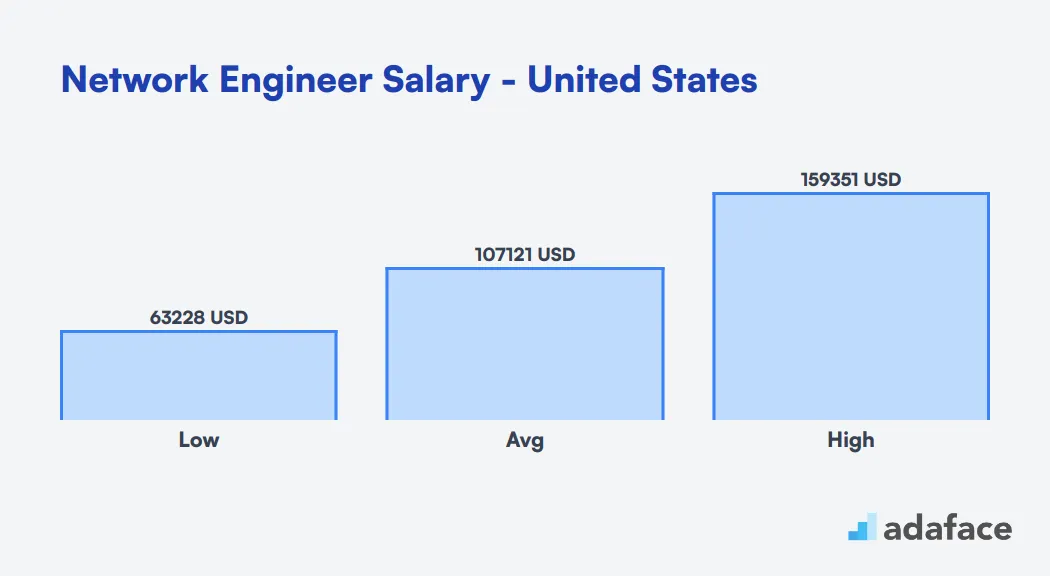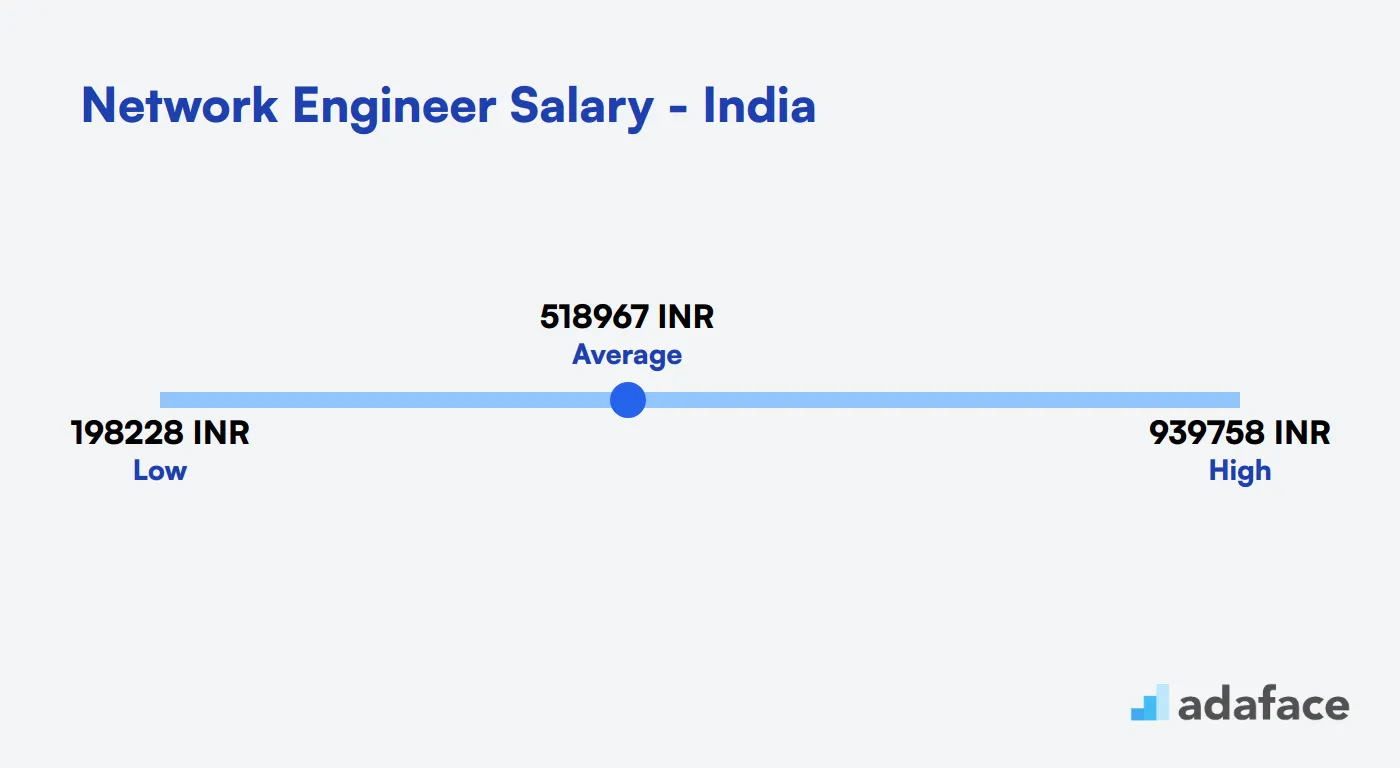As a recruiter or hiring manager, you are tasked with filling pivotal roles that ensure the smooth operation of your company's IT infrastructure. Hiring a network engineer is a strategic decision that involves more than just understanding technical jargon. Many companies struggle with identifying the right candidates due to a lack of clarity on skills, qualifications, and the hiring process. Missteps here can lead to network inefficiencies or even security vulnerabilities.
In this article, we guide you through the network engineer hiring process, highlighting the key skills and qualifications necessary for evaluating candidates. We cover everything from crafting a clear job description to leveraging platforms for finding top talent. Additionally, we provide insights on structuring interviews and necessary skills assessments. For further reference, you can explore our page on Network Engineer Test.
Table of contents
Network Engineer Hiring Process
The process of hiring a Network Engineer typically spans 4-6 weeks. Let's break down the key steps and timeline for recruiting this technical role:
- Post a well-crafted job description on relevant job boards and platforms
- Review incoming resumes and applications (3-5 days)
- Conduct initial screening assessments to evaluate technical skills (5-7 days)
- Schedule and conduct technical interviews with shortlisted candidates (1-2 weeks)
- Perform reference checks and make a job offer (3-5 days)
- Finalize onboarding details with the selected candidate
Each stage requires careful consideration to ensure you find the right fit for your organization. In the following sections, we'll dive deeper into these steps, providing checklists and resources to streamline your Network Engineer hiring process.
Key Skills and Qualifications for a Network Engineer
When hiring a Network Engineer, it's important to distinguish between must-have skills and nice-to-have qualifications. This distinction helps create a focused candidate profile that aligns with your company's specific needs. For example, while cloud networking experience might be essential for some organizations, it could be just a bonus for others.
Here are the typical required and preferred skills for a Network Engineer role. Remember, these can be adjusted based on your company's tech stack and project requirements. Using a skills assessment tool can help you evaluate candidates objectively against these criteria.
| Required skills and qualifications | Preferred skills and qualifications |
|---|---|
| Bachelor's degree in Computer Science, Information Technology, or related field | Experience with cloud networking (AWS, Azure, or GCP) |
| 3+ years of experience in network engineering or administration | Knowledge of network automation tools and scripting languages (e.g., Python, Ansible) |
| Proficiency in TCP/IP, routing protocols (e.g., OSPF, BGP), and switching technologies | Familiarity with SD-WAN technologies |
| Strong understanding of network security principles and firewall configurations | Experience with VoIP and unified communications systems |
| Certifications such as CCNA, CCNP, or equivalent | CCIE certification or progress towards it |
How to write a Network Engineer job description?
Once you have a candidate profile ready, the next step is to capture that information in the job description to attract the right candidates. A well-crafted job description can significantly improve your chances of finding a suitable network engineer.
• Highlight key responsibilities and impact: Clearly outline the specific duties of the network engineer, such as designing and managing network systems. Mention how their contributions will enhance network performance and support the organisation's goals.
• Balance technical skills with soft skills: While it's important to list technical skills like expertise in routing protocols and network security, don't forget to include soft skills such as teamwork and communication. This balance ensures you attract candidates who can collaborate effectively.
• Showcase unique selling points: Describe what makes your company attractive to potential employees, whether it's innovative projects, opportunities for growth, or a diverse work environment. A compelling narrative about the role and the organisation can make a lasting impression on candidates.
For a more detailed guide, you can refer to our network engineer job description page.
Top Platforms to Find Network Engineers
Now that you have a well-crafted job description, it's time to list your opening on job sites to attract qualified candidates. The right platform can significantly increase your chances of finding the perfect network engineer for your team.
LinkedIn Jobs
Ideal for posting full-time, part-time, and contract positions. Offers wide reach and ability to target specific skills and experience levels.

Dice
Specialized in tech jobs, including network engineering. Great for finding candidates with specific technical skills and certifications.

Indeed
Offers broad exposure for job listings. Useful for all types of network engineering positions and reaches a diverse candidate pool.

Other notable platforms include Upwork for freelance talent, Toptal for elite professionals, and the Cisco Certified Network Professional (CCNP) Directory for certified experts. TechFetch and CrunchBoard cater to IT specialists and startups respectively. Each platform offers unique advantages, so consider your specific needs when choosing the right assessment tools and job boards for your hiring process.
Keywords to look for in Network Engineer resume
Screening resumes is a smart way to narrow down your candidate pool, allowing you to focus your time on those most likely to succeed in a Network Engineer role. With many applicants submitting resumes, identifying the right candidates quickly becomes a challenge.

One way to start is by manually screening resumes for key skills and qualifications. Look for mentions of relevant certifications like CCNA or CCNP, as well as experience with protocols such as TCP/IP, OSPF, and BGP. A strong understanding of network security principles and experience in network engineering are also good indicators.
For a more streamlined approach, you might consider using AI language models (LLMs) to assist with resume screening. These tools can help you quickly identify resumes that are aligned with the required skills and qualifications, saving you time and ensuring a more objective screening process.
To utilize AI tools effectively, you can provide them with a clear prompt to guide the resume evaluation process. For example:
TASK: Screen resumes to match job description for Network Engineer role
INPUT: Resumes
OUTPUT: For each resume, provide following information:
- Email id
- Name
- Matching keywords
- Score (out of 10 based on keywords matched)
- Recommendation (detailed recommendation of whether to shortlist this candidate or not)
- Shortlist (Yes, No or Maybe)
RULES:
- If you are unsure about a candidate's fit, put the candidate as Maybe instead of No
- Keep recommendation crisp and to the point.
KEYWORDS DATA:
- Network Infrastructure (Routers, Switches, Firewalls, VPNs)
- Protocols (TCP/IP, OSPF, BGP)
- Security (Firewall Configuration, VPN)
- Automation and Scripting (Python, Ansible)
Recommended Skills Tests for Network Engineer Assessment
Skills tests are a reliable way to evaluate Network Engineer candidates beyond their resumes. They provide objective data on a candidate's technical abilities and problem-solving skills. Here are five key tests we recommend for assessing Network Engineers:
Network Engineer Test: This comprehensive assessment covers core networking concepts, protocols, and troubleshooting skills. It helps evaluate a candidate's overall understanding of network architecture and implementation.
Cisco Routing and Switching Test: For roles involving Cisco technologies, this specialized test assesses proficiency in configuring and managing Cisco network devices. It's particularly useful for positions requiring hands-on experience with Cisco equipment.
Linux Test: Many network environments rely on Linux systems. A Linux skills assessment can gauge a candidate's ability to work with Linux-based network tools and perform system administration tasks.
Cloud Computing Test: As networks increasingly integrate with cloud services, knowledge of cloud concepts is valuable. This test evaluates understanding of cloud architectures, services, and network integration strategies.
Cybersecurity Test: Network security is a critical aspect of a Network Engineer's role. A cybersecurity assessment helps identify candidates who can implement robust security measures and protect network infrastructure.
Structuring the Interview Stage for Network Engineers
After candidates pass the initial skills tests, it's time for technical interviews to assess their hard skills in depth. While skills tests are great for initial filtering, technical interviews help identify the best-fit candidates for the role. Let's look at some sample interview questions to evaluate network engineering expertise.
Consider asking questions like: 'Explain the OSI model and its layers', 'How would you troubleshoot a slow network?', 'What's the difference between a router and a switch?', 'Describe the process of subnetting', and 'How do you secure a wireless network?'. These questions help assess the candidate's understanding of networking fundamentals, problem-solving skills, and security knowledge, which are key for a Network Engineer role.
What is the cost of hiring a Network Engineer?
Hiring a Network Engineer involves a significant financial commitment. In the United States, the average salary hovers around $107,121, with a range spanning from $63,229 to $159,351 based on experience and location. In India, you can expect an average salary of approximately INR 518,968, with figures varying from INR 198,229 to INR 939,759.
Network Engineer Salary in the United States
The average salary for a Network Engineer in the United States is approximately $107,121. Salaries typically range from $63,229 at the lower end to $159,351 for more experienced professionals. Factors such as location, experience, and specific skill sets can significantly influence these figures.

Network Engineer Salary in India
The average salary for a Network Engineer in India is approximately INR 518,968 per year. Salaries can vary widely based on location, with the lowest reported salaries starting around INR 198,229 and the highest reaching up to INR 939,759. Major cities like Bengaluru and Hyderabad offer competitive packages, often exceeding INR 650,000 annually.

What are the ranks of Network Engineers?
The role of a Network Engineer can often be confused with similar positions, but it comes with its own distinct hierarchy. Understanding these ranks is key to hiring the right talent for your organization's networking needs.
- Junior Network Engineer: This is typically an entry-level position. Junior Network Engineers assist in basic networking tasks under the supervision of senior staff. They are usually involved in troubleshooting and basic network maintenance.
- Network Engineer: At this mid-level rank, professionals take on more responsibility for designing, implementing, and managing networks. They have a deeper understanding of network protocols and often work on more complex projects.
- Senior Network Engineer: Senior Network Engineers lead network projects and often mentor junior staff. They possess advanced skills and experience, allowing them to handle high-stakes network issues and strategize for future network enhancements.
- Network Architect: This is a senior-level position focused on the overall design of network infrastructures. Network Architects develop comprehensive network solutions that meet organizational needs, ensuring scalability and security.
- Network Manager: As a managerial role, the Network Manager oversees the entire network team. They are responsible for ensuring that all network components function cohesively and that their team meets the business's networking goals.
Hire the Right Network Engineers for Your Needs
In this blog post, we've navigated through the essential steps for hiring a network engineer. From understanding the hiring process, identifying key skills, crafting job descriptions, to exploring platforms for finding talent, each piece plays a critical role. We've also highlighted the importance of using the right skills tests to ensure you identify the best fit for your team.
The key takeaway is that using well-crafted job descriptions and targeted skills tests can significantly enhance your hiring accuracy. Consider incorporating a Network Engineer Test or a Cisco Routing & Switching Online Test to effectively evaluate candidates' expertise. These measures will help ensure you hire network engineers who meet your company's requirements and excel in their roles.
Network Engineer Online Test
FAQs
Network engineers are responsible for designing, implementing, and managing the computer networks within an organization to ensure optimal performance and security.
Top platforms for finding network engineers include LinkedIn, Indeed, and specialized sites like Adaface, which offers skill assessment tools.
A network engineer job description should include roles and responsibilities, required skills and qualifications, and any specific certifications such as Cisco or AWS.
Conducting technical skill tests and coding assessments through platforms like Adaface can help evaluate a candidate's proficiency effectively.
Focus on questions about network protocols, troubleshooting steps, and experience with network management and security tools. Check our Network Engineer Interview Questions for more ideas.
Ensure candidates not only meet technical requirements but also fit within the company culture by discussing past collaborative efforts and problem-solving approaches in teams.
Career paths for network engineers often start with junior roles and can progress to senior network engineer, network architect, or IT manager roles.

40 min skill tests.
No trick questions.
Accurate shortlisting.
We make it easy for you to find the best candidates in your pipeline with a 40 min skills test.
Try for freeRelated posts
Free resources



